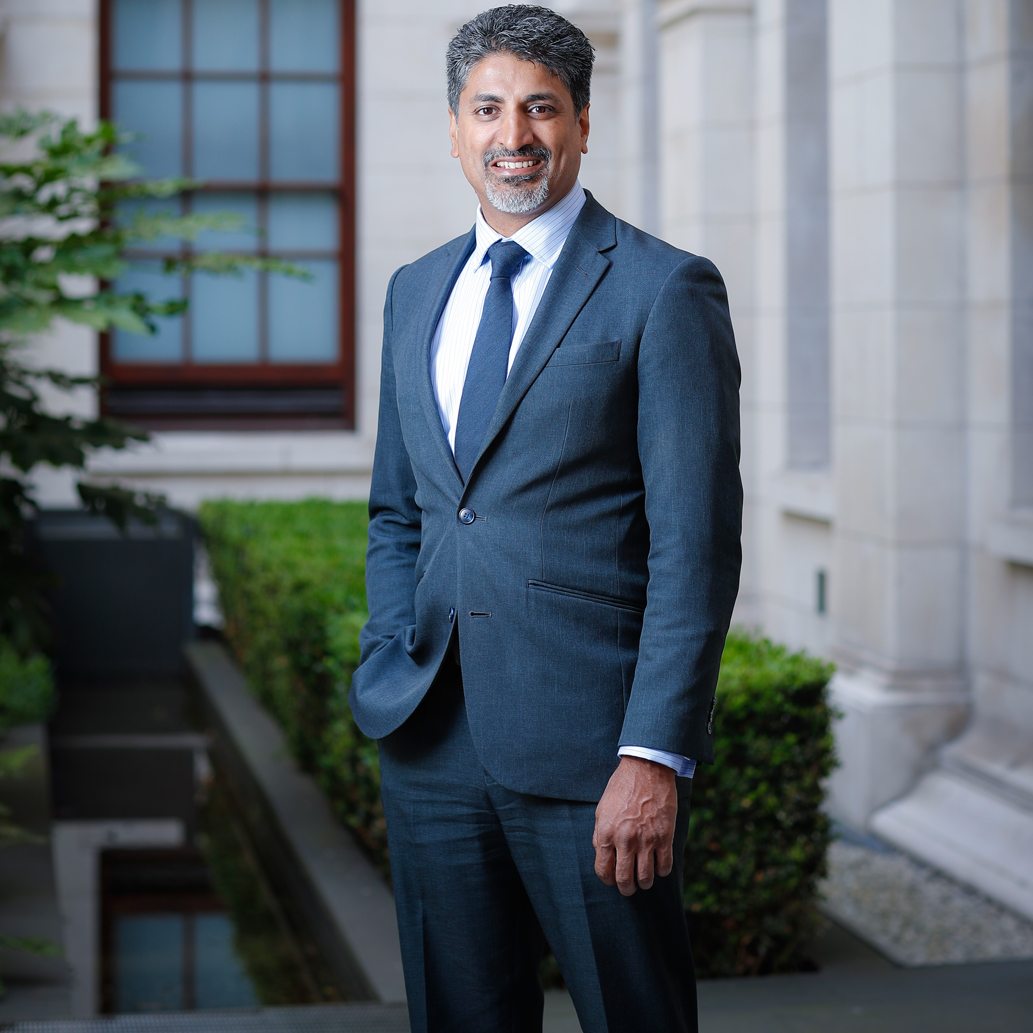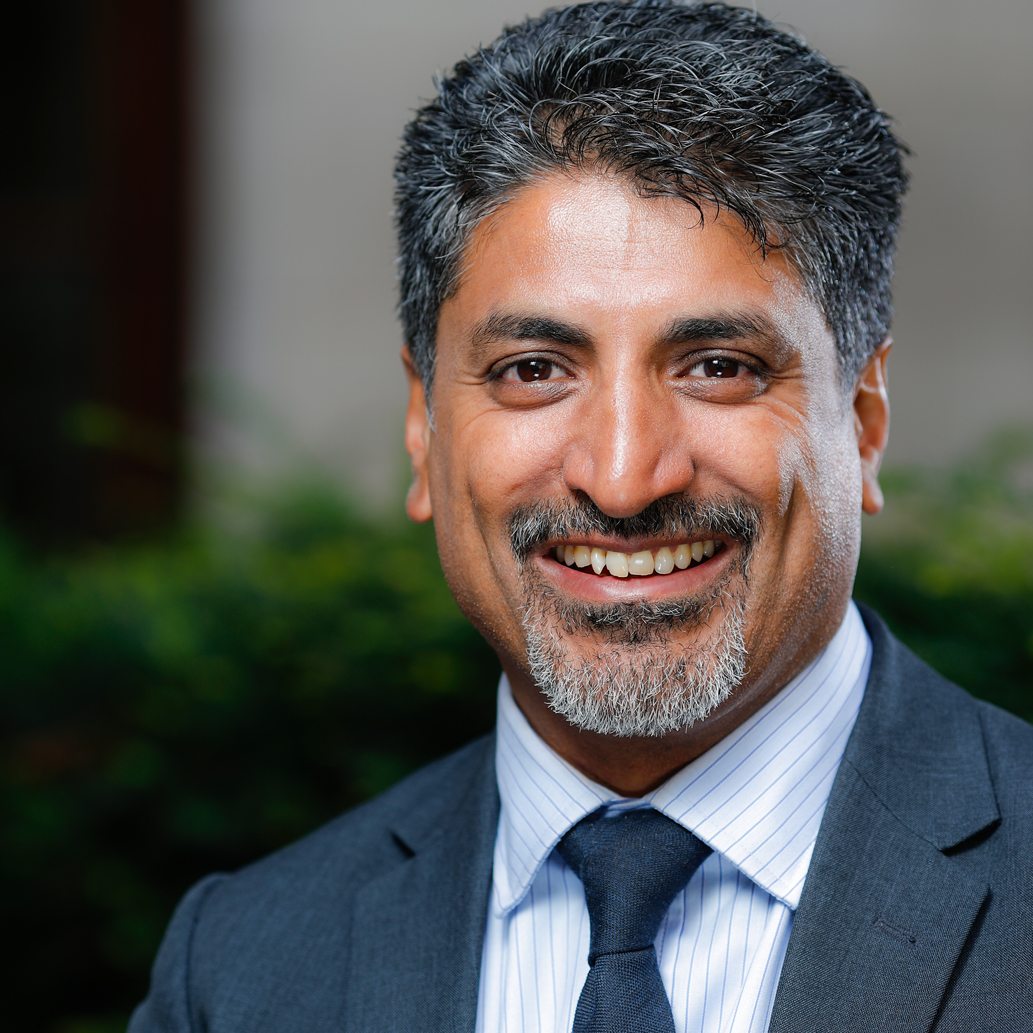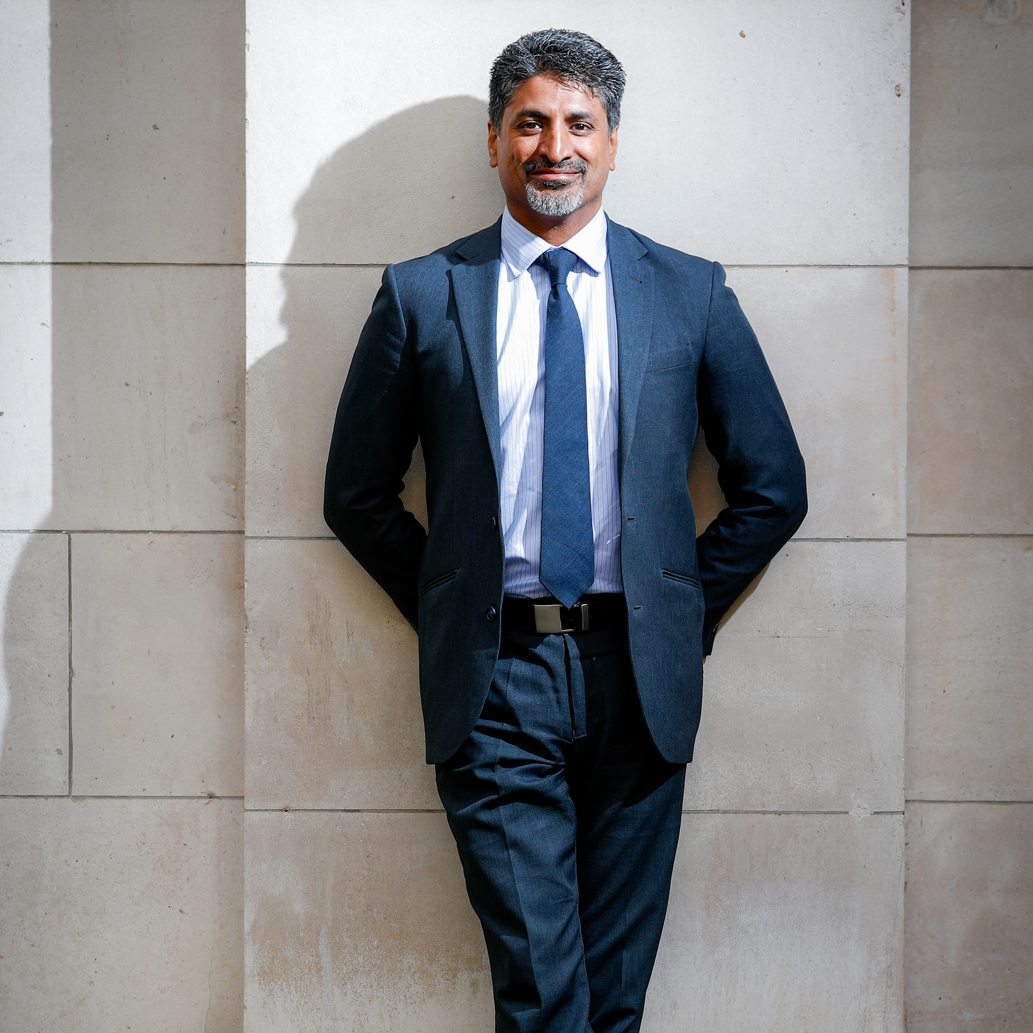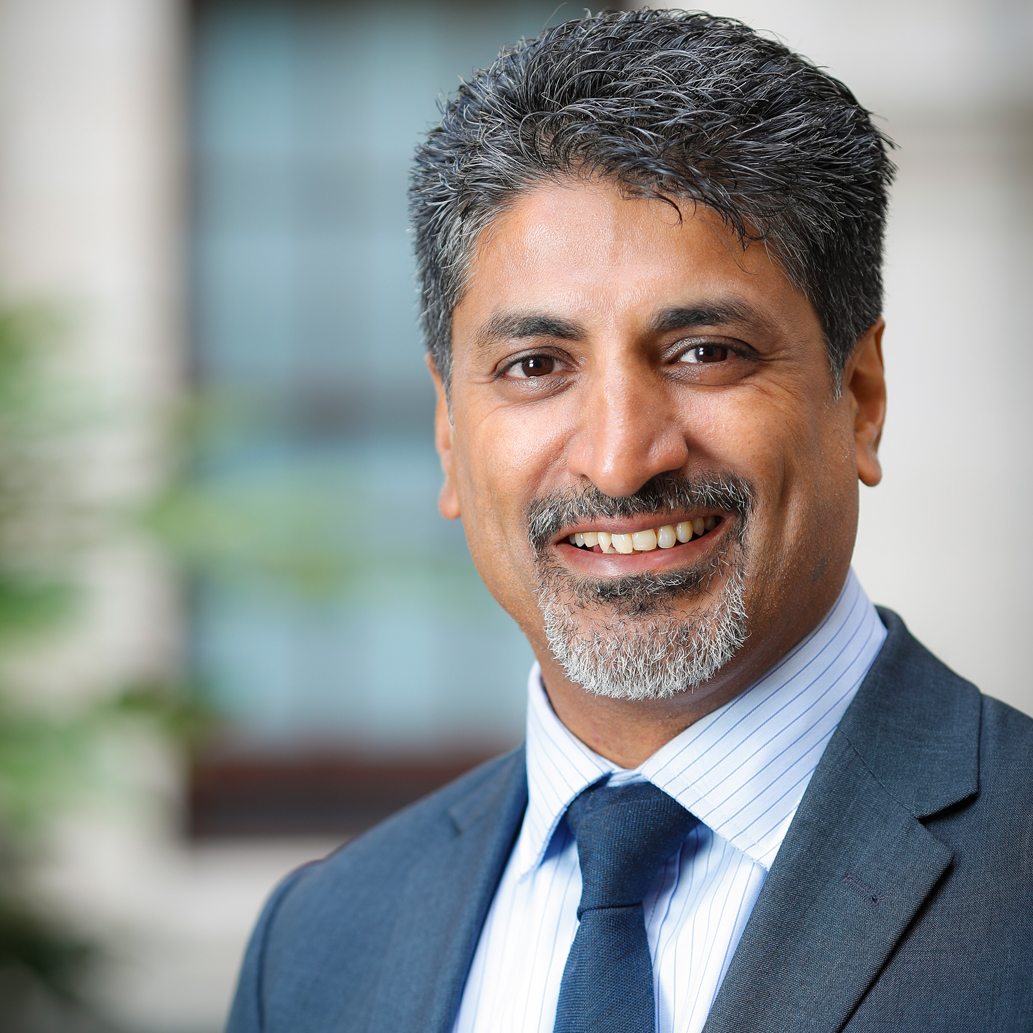Ravi, tell us about your early life and why you considered a career in HR?
I’ve been on an interesting journey, and HR wasn’t a path I even contemplated at first. I started out in a financial services company, in credit control, but my ambition was always to join the police service, which I think surprised my family and friends. Subsequently, I did join the police and was based in Luton, and it was a complete cultural shock for me. It was overall a positive experience and I really enjoyed working with people and serving the public. As you can imagine, I experienced all walks of life and some pretty hair-raising situations, which really turned the boy into a man very quickly. I really learnt a great deal about myself as I coped and dealt with people and a whole host of situations. As I continued my career, I was beginning to migrate to more corporate roles within the Bedfordshire Police, via a stint in special operations planning, where I took on responsibilities for Investors in People and the European Foundation for Quality Management excellence model. This eventually brought me into the world of learning & development and opened me up to more personnel-related elements, where I undertook various roles, specialising in training new police officers and interviewing and on-boarding new recruits.
This must have been a very different set of experiences to pounding the local beat. It was, I was travelling around a good deal, giving presentations and speaking to officers and I really enjoyed this time. From an HR perspective, with colleagues, I began planning and working on a massive cultural transformation in policing, with a view to be more community-based in approach. We worked with a specialist Personal Leadership change company and I was selected for training, which led to myself and a small team running sessions right across the entire force. Interestingly, we ran much of it out of a military base in Bedfordshire, and I was really engaged and enjoying the impact that our efforts were yielding. There was a change in Government, Labour came into power with Tony Blair as Prime Minister and at that point the home secretary Jack Straw was bringing in new changes for the police service, which impacted on my workload. I ended up travelling around the country, presenting to forces, and this included a media career, appearing on TV and radio, talking about policing. The exposure meant that I was offered a couple of opportunities and I left the police service and joined a recruitment/head hunter company called Veredus Executive Resourcing. The role had me working with public and private organisations, identifying and matching senior level candidates to roles, and in the course of working in the public sector, I was head hunted myself, two years later, for a role in the Home Office. Working for the Government was not on my radar and initially, I was reluctant. But I looked at the post in question, and it was, to all intents and purposes, a dual role – to manage a portfolio around the public-facing image of Home Office – and also managing internal staff issues. It was a penny drop moment, and this was to be my first substantial HR job. Over time, I took on increasingly more HR responsibilities, which included ministerial liaison and a good deal of transformation and change, which goes with Government intervention territory. We introduced benchmarking and carried out a lot of work on gender, race and LGBT equality across Home Office. Added to that, I was managing the L&D and talent portfolios too, so all in all, this was a fully-fledged HR leadership role. I ended up staying a bit longer than I thought, and had a hand in a great deal of change, policies and procedures, when I was approached for, quote; “a big HR role at HMRC”. It transpired that the role was a lot bigger even than its billing, and so with some trepidation, I applied and, to my great surprise, was offered the job.

How was the job described to you and what were the objectives?
First on the roster was a huge “engage in change” exercise and, in terms of scale, this would involve 69,000 people. But not only was this massive in terms of numbers, the objective was pretty daunting too, as it was to transform the tax authority from an enormous, laborious and time-consuming paper-based model, with a long and deep-seated legacy, which had barely changed since the 1950s. Although it urgently needed to be transformed into a customer-centric organisation, fit for the 21st century, we needed to avoid any obstacles and negativity, if at all possible, hence the onus on engagement. The task was indeed big! The other key objective was to reduce the organisation’s geographic footprint. Of course, various elements of the operation were spread out around the country, but the new model was to co-locate staff, create a more highly-skilled workforce and opportunities for career pathways in new regional hubs. First, we had to put a business case together for this massive transformation. There were more than 170 offices and we had to decide how we could best consolidate the operation, at the same time, the Government wanted to create these hubs in cities. So myself as HR Director for our workforce, and my colleague, Director of Estates, came together and developed a programme, building our future locations. First, we looked at our geographic footprint, looked at locations closest to cities, across 13 large sites, where we thought we would have presence in the future. Finally, we arrived at a point where we had 18 sites from 170. It was a hectic and completely all-encompassing operation.

The scale of the consolidation sounds incredible by any standards. What was the next stage of the operation?
The board gave us the greenlight and the CEO, Lin Homer, insisted that the plan should be communicated to every employee, face-to-face, at exactly the same time. I thought this was bonkers, how could we possibly do this with 69,000 people, face-to-face? We then embarked on a programme to train 2000 announcers, on a precise core script adapted for every region, team and office. We then made the announcement in November 2015, at the same time to everybody. I was coordinating from here in London, with screens and contacts around the country, as the announcement was made. It was incredible, as we announced, we had live feeds coming in, and we were sat with an army of people managing the way the announcement was being received and dealing with enquiries. It was pretty stressful, making policy clarifications on the go, which could come back and haunt you if you got it wrong. It transpires that this was probably the biggest announcement of its kind in Europe and we landed it. We all gave a big sigh of relief, but then came the really hard bit, implementation. Almost two years on we have just opened our first regional hub in Croydon, it’s all systems go and people are really responding well, it’s a much better environment than most people are used to and it works as an excellent model to demonstrate the rolling programme. The downside is, of course, that we are losing a lot of people over time, and of course, whatever scale you are working at, this is hard. But we have managed this on a huge scale with great care and with the dignity that colleagues absolutely deserve.

The shortage of skills in the tech sector are well documented. How successful are you in attracting the skills and talent necessary for what is a much more tech-led operation?
We are very much moving on to a new and higher level of operation, which is very technology-led. So of course, we are recruiting with these skills and capabilities in mind, developing and training a wide mix of people. We had 100,000 applications for jobs last year, 30,000 just for 250 graduate tax placements. We have many technical roles, we are recruiting very tech-savvy people and we have now in-sourced our IT. In fact, part of my role is get to grips with the impact of technology and I’ve been researching AI, automation and robotics, assessing how this will more broadly impact on our future operations, people and the workplace in general. It is as fascinating as it is daunting and challenging, but it is a reality and we have to be equal to the increasing sophistication of these nefarious operations. In terms of how AI will impact operations, there are a whole swathe of issues, including ethical ones. To give you an example, a big part of our operation was paper-based. Now the first stage of automation, whilst some tax returns are still paper-based is, machines open letters, scan them and then electronically transmit the information to the correct destination. Since then we are now introducing smarter technology into contact centres, and eventually the whole process will be digital, and this will complete the organisation’s ambition to be more efficient.
There are serious ethical and moral questions to answer in this.
There are, but I am convinced that ultimately it will improve working lives and free people to be employed in more cerebral and creative roles, and repetitious, manual factory-style work will be resigned to history. We always knew that we would have to reduce the size of the workforce, we set that out publicly and we’ve spoken widely about the issues that automation brings. But I think, as our understanding increases, we will see an increasing augmentation of technology with humans. Where it is possible, we intend re-deploy our people into roles and activities and we can cover more risk. The bottom line for us is, Government is clear about what they are expecting from a transformed HMRC, and has provided investment to tackle areas like tax avoidance. We have unprecedented levels of data on individuals and companies, and tax avoidance.
How effectively are you able to re-skill and upskill people, particularly considering the incoming speed of technology?
We take both upskilling and re-skilling very seriously. When people visit the new hubs, they see an entirely different workplace proposition and capability, and many want to be a part of that future. If people want to re-skill and that is successful, they will be offered a role in the organisation, that’s really important. And it’s not just for people staying, for those that are moving on, we aim to provide re-skilling or upskilling, to prepare them for a new role, so that their skillset is competitive and recognised in the job market, and attractive to potential employers. Part of our commitment from point one is, if people are hitting the job market, we will give them the support and guidance they need. There are some more remote parts of the country where people were fairly untouched by the changes at HMRC, and they took the change much harder than those in the city areas where they have been used to change. Our assessment on people’s change readiness was important, we ran workshops to see how people would cope with the change and I have a team of people now who do a roadshow, providing support and information.
For many, the image of the HMRC is of old dusty shelves full or lever arch files, how are you addressing attraction, to appeal to your target candidate?
As for every employer, competence with technology is a much sought-after capability, of course. A really useful gauge of our progress at attracting younger candidates with tech competence is that our average age of new hires is now 31, whereas the average age of the overall workforce is 44, down from 46 two years ago. What we see with this age-group is that they are already coming in with a set of skills they have developed in their formative growing up years, both personally and in education and higher education. But I would like to stress that we are not consciously recruiting younger people, we are attracting them, and we are enhancing their skillset immediately they come on board. We recently brought in about 1300 apprentices into the department, particularly the demographic which wouldn’t have access to a job in this organisation, and we have had real success.
There's no question technology is driving change and efficiency, but is there a danger that human instinct and sensitivity will be reduced, as machines effectively takeover?
When I started at HMRC back in 2014, I had a senior colleague who said “I’m glad you’re here to bring the humanity back into HR”. Paradoxically, the levels of tech and automation that is being introduced is metaphorically clearing people’s desks and providing the time and space to concentrate on more valuable aspects of their jobs. We have been changing our approaches in an agile way and changing the impact we are having. It’s not all plain sailing by any stretch of the imagination, the change is sonorous and colossal in scale. But the positives are really evident all around, so we will not shy away from our direction of travel. Like many of our colleagues around the country, we are closing the offices here in London and the South East and moving to regional hub offices.
The reasons for change were obvious, not much had changed in the operations for decades, the NHS came under huge scrutiny with the move to digital records which famously failed. The pressure to succeed at HMRC must have been acute, with the memory of that still fresh.
It was and indeed at HMRC, there had been a long history of not modernising systems and bad IT projects that failed to deliver a fundamental shift. When I arrived here four years ago I had a PC running on Windows XP with a slightly twisted screen. Now I have a Microsoft Surface Pro touchscreen tablet laptop, the transformation has been phenomenal. The organisation needed the right people to make the changes happen, for example, a CDIO, who formally worked for technology companies like Vodafone. Time and again, it comes back to the cultural piece, communicating, engaging and making sure people feel an important part of change as opposed to a victim of it. What we were part of was transformation, not change for the sake of change. The suite of transformation programmes in HMRC have been deemed to be the biggest transformation ever attempted in any European organisation private or public. What was required was bravery and conviction. The executive team and directors stepped up to the plate and they did not take their eye off the ball. This won hearts and minds, and once we could demonstrate the positive outcomes, the forward momentum was palpable. The customer was of course the centre focal point and now the technology is capable of coping with the high demands, the greater ease of carrying out tax returns online is winning confidence. Particularly the fact that, whilst most people are honest and want to contribute their fair share of tax, the fact that we can catch less honest people, will win plaudits.
Let’s move on to a lack of critical skills in your area and competing against a lot of private companies, able to offer higher rewards and remuneration, how do you think you will compete against that in the war for talent?
We are bringing in more apprentices into the digital space. The first people we brought in are training as specialists in things like coding, and we have had some real success. The work we are doing is innovative. The likes of Google make the headlines, but we are creating cutting-edge tools and capabilities that can exploit and interrogate databases and we are fast developing the skills in these areas. In the wider areas of the operation, we are promoting HMRC as an employer to good effect and, as the work transforms digitally, taking away the mundane manual work, we have some fantastic opportunities. Yes, we are the only tax authority in the country, but our capabilities are revered – we train up the commonwealth tax authorities – so increasingly there are global opportunities too. And I am happy to report that we’ve had key people leave us to go to the ‘Big Four’ tech organisations and earn more money, and then come back because they miss the quality of the work. If we can attract and retain people who want quality of life and purpose, as opposed to a focus on remuneration, then that suits me fine. If they think what they do has purpose, then that overrides the issue around money.
And what of the future? You have the model in Croydon and that demonstrates the new face of the organisation. What would you say the next challenge is?
If you’re trying to anticipate the future, there’s no point just feeling in the dark. We are constantly running “what if” models and doing projections, looking for the next mega trends. That doesn’t supply all the answers of course, but complacency and doing nothing is no excuse, equally taking an “educated guess” is equally likely to get you into trouble. We have a realistic idea of what the next ten years will bring and we’re keeping our eyes open. In terms of HR, I really don’t have any time for critics that say its days are numbered. Like anything in life you’ve got to continue to evolve to transform and challenge the status quo. As we finish one transformation we’re straight onto the next piece. And it’s not just how we operate, ultimately we are a tax authority and there are many changes that are impacting on our business, businesses operating solely digitally, digitisation and companies realising they don’t need as many employees because of AI. We are seeing fewer people working in corporates, more people in start-ups, entrepreneurship and the gig economies and that changes the tax bubble and where we then need to focus on. We have to understand what the customers need. That’s the work we have been doing now to improve the process experience.










